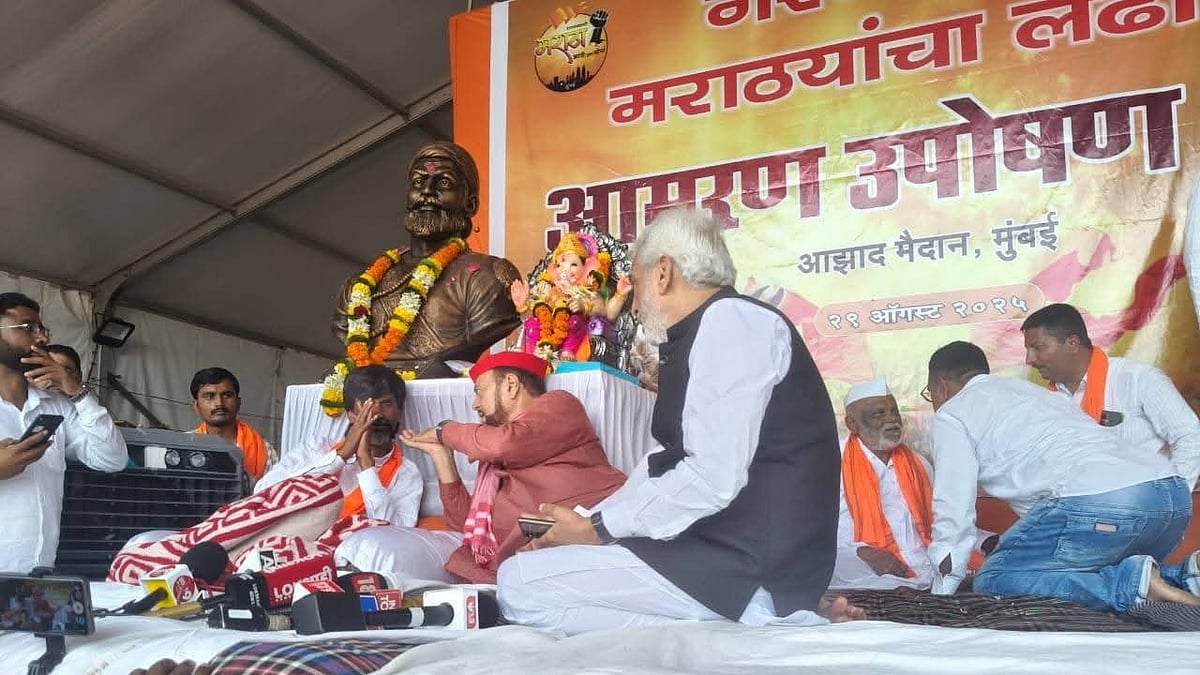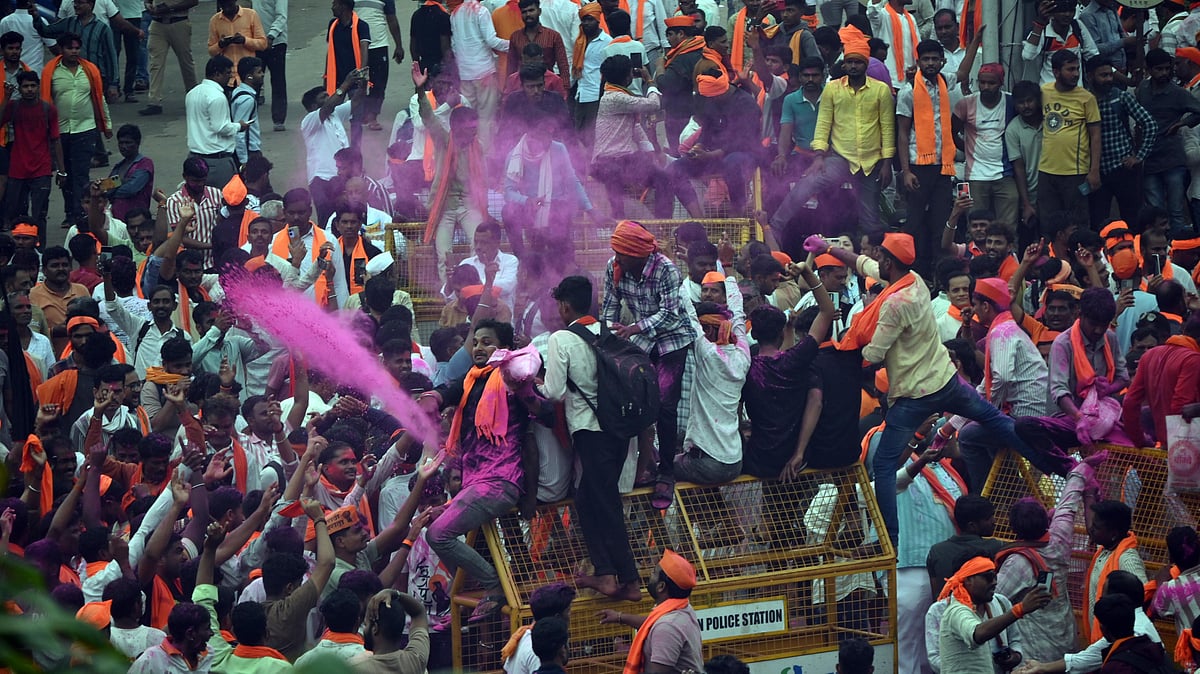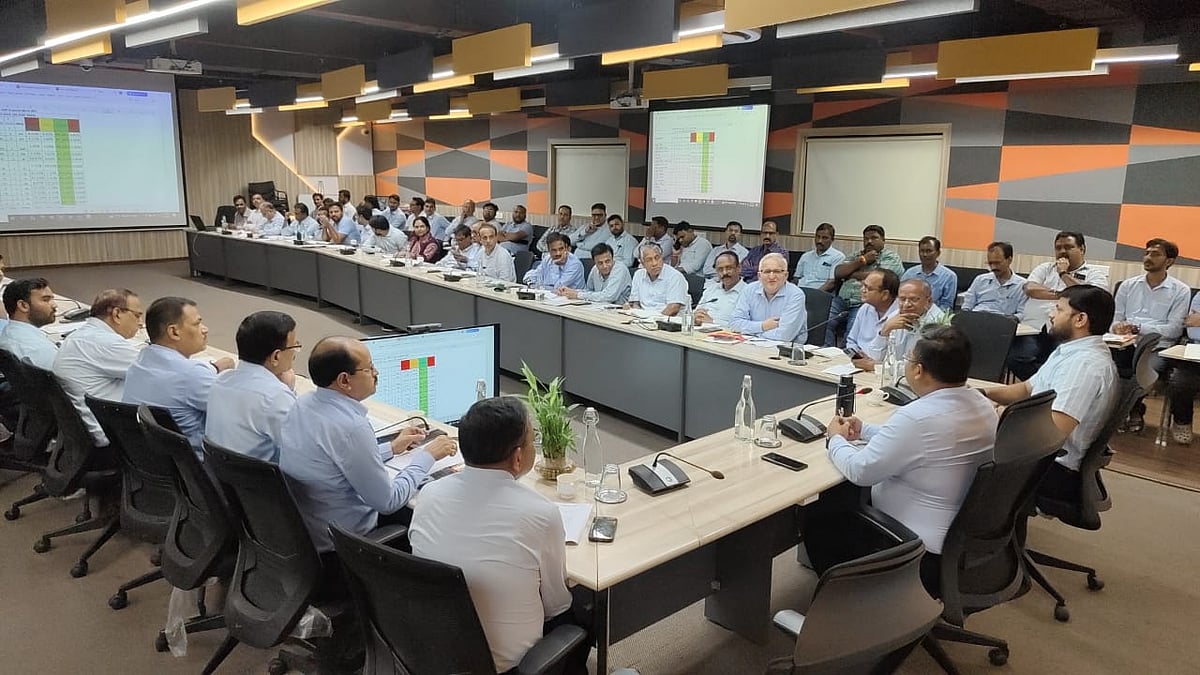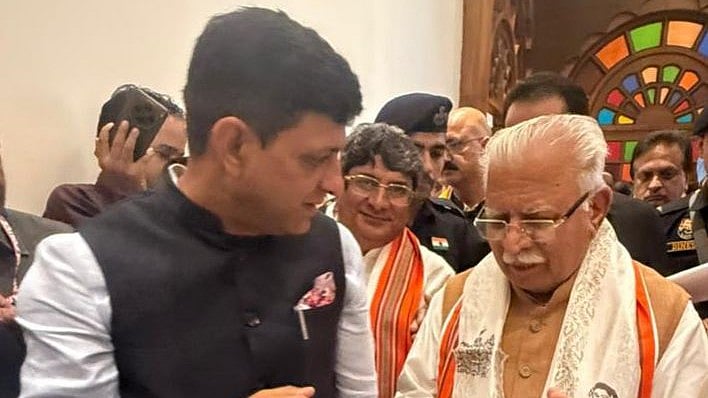Indore (Madhya Pradesh): Imagine this, a state drowning in floods. Villages swept away, families stranded on rooftops, children crying of hunger. Relief material lies locked in warehouses, waiting for files that never get signed. Why? Because the Chief Minister sits behind bars, claiming to govern from a prison cell.
Files don’t reach the jail, and those that do often return unsigned. Officers are paralysed, citizens suffer, and people die. Yet power clings stubbornly to prison walls. This is not democracy. It is its mockery.
Delhi has already lived this nightmare. When its Chief Minister landed in jail, governance froze. Promising policies — the Delhi Bazaar portal, Cloud Kitchen scheme, EV roadmap, and industrial plan — all lay suspended. Citizens bore the brunt while power sat caged.
It is against this backdrop that the 130th Constitutional Amendment has emerged. It stipulates that if a Prime Minister, Chief Minister, or Minister spends 30 consecutive days in custody for a serious crime (punishable by five years or more), they automatically lose office. If acquitted or released, they may return. The principle is simple: people should not be forced to suffer jailhouse governance.
This is not punishment - it is governance hygiene. After all, a government servant is suspended after just 48 hours in custody. Should ministers, who direct the entire state machinery, be held to a lower standard?
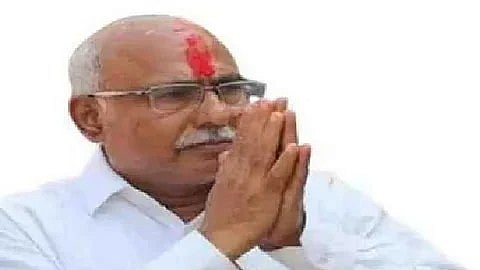
The world has already drawn this line. In New Zealand and Australia, ministers step down as soon as investigations begin. In Singapore, a transport minister resigned after his arrest. In France, ministers resign once a judicial probe is opened.
Kenya, Zambia, and the Philippines suspend officials when charges are framed. Italy’s “Severino Law” forced even Silvio Berlusconi out. In Britain and the U.S., leaders across the spectrum step down when convicted, as a moral obligation. If the world agrees governance and jail cannot coexist, why should India lag behind?
India has precedents too. BJP leaders - L.K. Advani, Uma Bharti, B.S. Yediyurappa, even Amit Shah resigned when charges were framed, only to return after acquittal. Others, however, exploited the absence of law, clinging to office when morality demanded otherwise.
India’s democracy is representative: citizens elect legislators, not directly the Prime Minister or Chief Minister. If a leader lands in jail, legislators can elect another without undermining people’s power.
This ensures institutions remain stronger than individuals, protecting both governance and democracy. Otherwise, one person’s hunger for power can cripple an entire state.
India has made strides in transparency. Transparency International’s Corruption Perceptions Index shows steady progress from 2013 to 2023, with India now ranked 93rd out of 180 nations. The Tax Justice Network’s 2025 Financial Secrecy Index placed India 24th, eight spots higher, reflecting financial transparency.
The World Bank’s Governance Indicators record improvements in control of corruption, rule of law, and administrative efficiency. States like Gujarat, Kerala, and Andhra Pradesh now top ease of doing business rankings, thanks to reforms like e-governance, e-tendering, direct benefit transfers, and Digital India.
The BJP’s conduct reflects this ethic. Its leaders stepped aside when charged and returned cleared. The Congress, by contrast, defends governance from jail. Gandhi went to prison as sacrifice for freedom, not as a trick to cling to power. Yet Congress leaders now invoke his name to justify their grip on office.
Today, nearly half of India’s MPs and MLAs face criminal charges. Citizens must no longer bear this burden. The 130th Amendment is not just a legal reform — it is a clarion call to cleanse politics. Institutions must rise above individuals. When the people awaken, thrones tremble.


